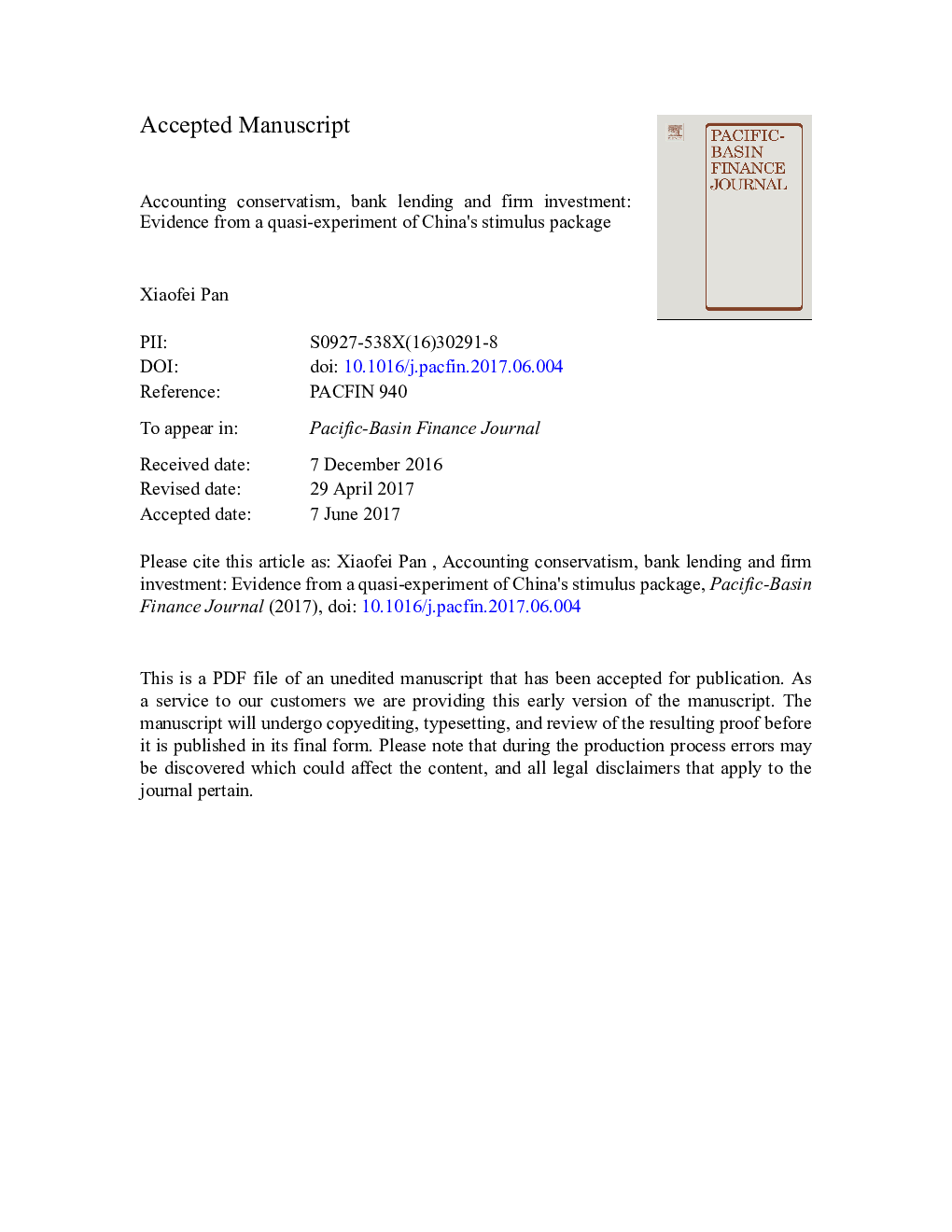| Article ID | Journal | Published Year | Pages | File Type |
|---|---|---|---|---|
| 5102301 | Pacific-Basin Finance Journal | 2017 | 34 Pages |
Abstract
Using a sample of China's listed firms between 2003 and 2014, this study finds that firms receive more bank loans after the stimulus package which is less significant for firms with conservative accounting. In addition, firms with conservative accounting exhibit higher investment efficiency, which becomes weaker after the stimulus package which represents an exogenous shock to credit supply. Further analysis shows that the abovementioned findings are more significant for non-SOEs, firms from less government-favoured industries and regions, and firms with severe interest conflicts between debtholders and shareholders. These results are robust for alternative specification and alternative measurements. Overall, these findings suggest that the beneficial effects of accounting conservatism are subject to institutional environments and government policies.
Related Topics
Social Sciences and Humanities
Economics, Econometrics and Finance
Economics and Econometrics
Authors
Xiaofei Pan,
